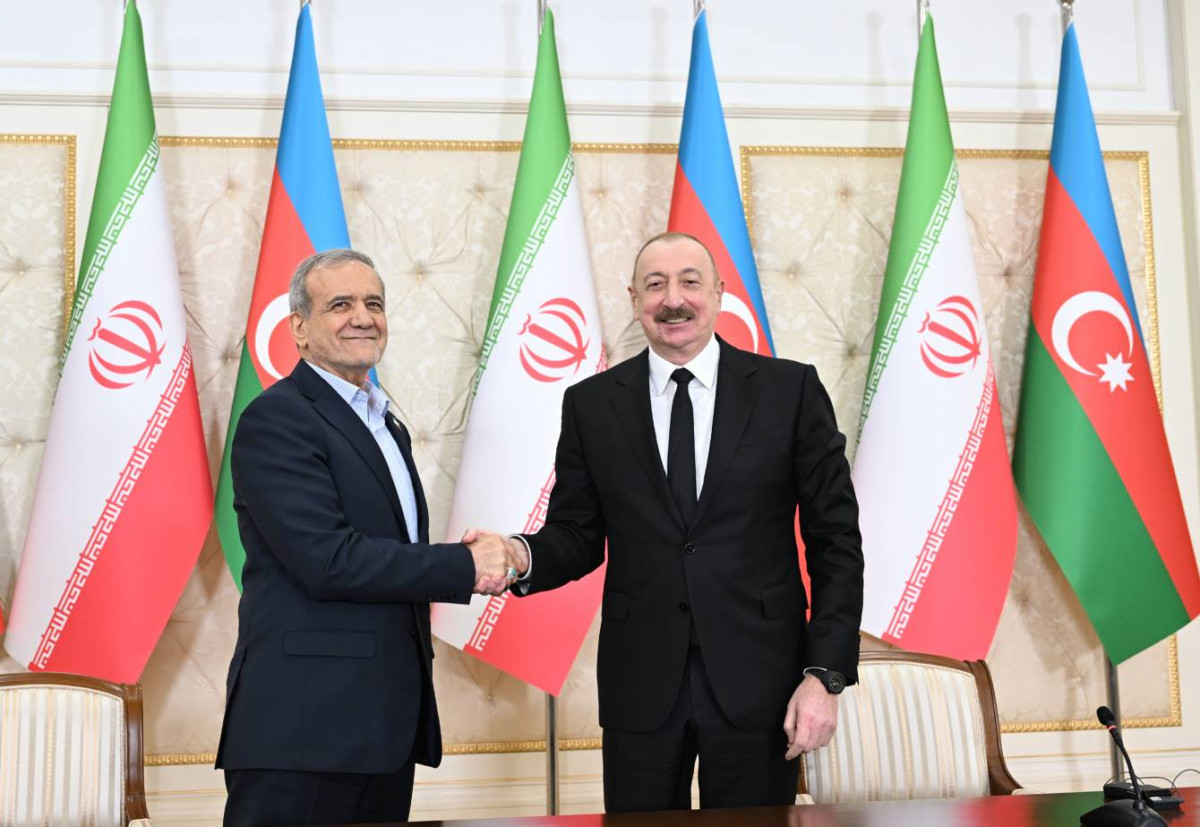
Azerbaijan-Iran relations: from the past to the future
Commentary by Agil Asadov, Department Head of the Center for Analysis of Economic Reforms and Communication, Doctor of Economic Sciences.
Azerbaijan-Iran relations are multifaceted and have gone through quite complex processes in historical, political, cultural and economic terms. Both regional and global factors have played an important role in the formation and development of these relations.
Azerbaijan has always approached this issue sensitively and carefully. As emphasized in the speeches of President Ilham Aliyev: "We attach special importance to the comprehensive development of interstate relations between Azerbaijan and Iran. Relations between our countries are strengthened based on the common historical, religious and cultural values of our peoples." These words of the head of state demonstrate the depth of both geographical and spiritual ties between the two countries.
The words of the President of the Islamic Republic of Iran, Masoud Pezeshkian, in an interview with Azerbaijan Television, “I am very happy that I will visit Azerbaijan. Because we do not consider Azerbaijan a foreign country, we do not consider ourselves strangers there. We shared a common history in the past, but today there is a border between us. As the people of the two countries, we have shared each other’s sorrows and joys. We were very close brothers in the past. It will continue to be like this in the future,” show that the Iranian side is also interested in the development of relations with our country.
Although the dynamics of the formation of Azerbaijani-Iranian relations are not smooth, close neighborliness, sharing the same geography, and historical and religious ties between the peoples have made continuous relations between the two countries necessary. It is precisely as a result of this that the trade turnover between Azerbaijan and Iran is constantly developing on an increasing line.
In 2024, this turnover amounted to 647 million US dollars, which is a 33% increase compared to 2023. In 2024, Azerbaijan exported $14 million worth of products to Iran, and in return, $633 million worth of various goods were imported from Iran. Mainly poultry meat, frozen fish, milk and dairy products, fruits and vegetables, tea, confectionery, construction materials and industrial products are imported from the neighboring country. Steel semi-finished products, natural gas, electricity, food industry waste and other products are exported from Azerbaijan.
Currently, more than 1,000 Iranian companies are registered in Azerbaijan, and the volume of Iranian investments in our country has exceeded $3.4 billion. Approximately 30 documents covering investment promotion and protection, energy, transport, customs, tourism and other areas have been signed between the two countries.
Within the framework of cooperation, joint automobile production is being carried out in the Neftchala Industrial District, an investment of $20.6 million in the Pirallahi Industrial Park and the construction of a pharmaceutical plant is planned. "The Caspian Pharmed" pharmaceutical plant will play a significant role in the development of the pharmaceutical industry in Azerbaijan, providing the population with quality pharmaceutical products through local production, reducing dependence on imports in this area and increasing export potential. As a result of the plant's activities, 90 people will be provided with permanent jobs.
One of the important areas of cooperation between the two countries is transport relations. One of the main areas of cooperation in the field of transport and logistics is the development of the North-South transport corridor. A 50% increase in cargo transportation on this route in 2023 and the construction of the Agband railway bridge serve to expand the logistics capabilities of the two countries. The North-South Transport Corridor acts as the shortest and most efficient transit route between Europe and Asia, and also creates conditions for economic diversification and expansion of international trade.
The North-South international transport corridor will ensure the transportation of cargo from India and Southeast Asian countries via Azerbaijan from the Iranian port of Bandar Abbas. It is planned to transport 15 million tons of cargo per year on this route, and Azerbaijan can earn huge profits from this transit. This means approximately $250-300 million per year. The cost of transporting cargo from Southeast Asia to Europe through this corridor will be 10-15 percent cheaper. The distance covered by cargo will be 800 km less than that through the Suez Canal. At the same time, the transportation time will be reduced by 20 days, and the cargo will be delivered to the destination in a more reliable way. According to rough calculations, there is an opportunity to save more than $2,500 for every 15 tons of cargo transported. In this regard, the Western route of the “North-South” transport corridor (passing through Astrakhan and Makhachkala in Russia, connecting to the Iranian railways from Samur to Astara through Azerbaijani territory, and then connecting to the new Astara-Rasht-Qazvin railway, the construction of which is underway) is of strategic importance for Azerbaijan.
The North-South Transport Corridor provides for the transportation of goods from India to Europe. The full commissioning of the “Qazvin–Rasht–Astara (Iran)–Astara (Azerbaijan)” railway line, which is an important part of this corridor, is a priority.









Op-eds
Agil Asadov
Head of the Strategic planning division
"Azerbaijan-China Relations: Formation and Perspectives"
Isa Gasimov
Head of the “Enterprise Azerbaijan” portal
Social entrepreneurship is an important tool for economic sustainability
Vusala Jafarova
Head of the Turkic World Research Center
"Driving Economic Integration and Digital Transformation: Azerbaijan’s Strategic Leadership in the Organization of…
Vusala Jafarova
Head of the Turkic World Research Center
"Azerbaijan’s Admission to the D-8: Strengthening Economic Cooperation with Global Potential"
Vusala Jafarova
Head of the Turkic World Research Center
Turkic States Economic Outlook for the First Half of 2024: Growth, Trade, and Investment Trends
Agil Asadov
Head of the Strategic planning division
Moody's: Growing influence of the Middle Corridor boosts economic prospects
Vusala Jafarova
Head of the Turkic World Research Center
The Karabakh Declaration and the future of economic cooperation of the Turkic world